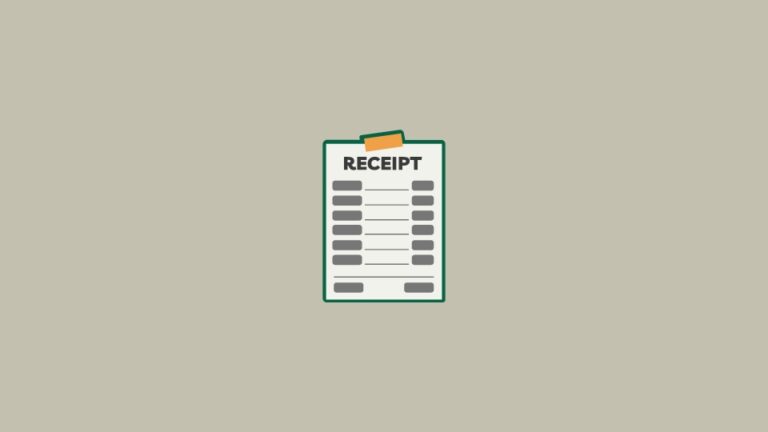How Long Can a Landlord Leave You Without a Fridge?
Imagine coming home after a long day, craving a cool, refreshing drink, only to find out – there’s no fridge in your apartment! Sounds like a nightmare, right? This scene is more common than you think. The question is: How long can a landlord legally leave you without this essential appliance? Buckle up, for we’re about to embark on a journey that will leave you well-versed in the rights and remedies you have as a renter facing a fridge-less reality.
Understanding Your Rights as a Tenant
You may be wondering, as a tenant, what rights do you have when it comes to appliances in your rented property, particularly the refrigerator? Well, let’s start with the basics. Most laws favor the tenant’s right to a safe and habitable living environment, and this includes essential appliances such as the refrigerator.
Most state laws require the landlord to maintain the livability of the rental property. They are obliged to ensure all major appliances, including the fridge, are in good working condition at the beginning of your lease. Any damage or malfunction that occurs afterward, barring tenant misuse or negligence, would be the landlord’s responsibility. So, it’s essential for you as a tenant to understand these rights and how to assert them.
- The Warranty of Habitability: This legal principle highlights a landlord’s responsibility to offer livable conditions in a rented property. A working fridge, being a part of these conditions, is often included.
- Your Lease Agreement: Review your lease agreement carefully. It could specify who is responsible for any necessary appliance repairs or replacements.
- State and Local Laws: Laws vary by state and even city, which means your rights may differ. It is important to familiarize yourself with local laws regarding tenant rights and landlord responsibilities.
Please note, without a working fridge, you may find your living conditions fall below the ‘habitable’ standard. Thus, your landlord has a legal duty to address the fridge issue promptly.
But, there’s a caveat. In some cases, landlords can take a reasonable length of time to fix or replace the fridge. How ‘reasonable’ it is, depends on the specifics of your situation and local laws. Therefore, it’s crucial to communicate swiftly and clearly with your landlord if your fridge becomes faulty.
Remember: While it can be frustrating to face any sort of appliance trouble, understanding your rights as a tenant is a key step in resolving these issues effectively. Arm yourself with knowledge and keep open lines of communication with your landlord for a smooth rental experience.
The Importance of a Functional Fridge
Imagine a day without your bathroom or without your AC in summer. Just like these amenities, having a functional fridge in your rental space is just as vital. But why? Let’s dive into this.
First and foremost, a functioning refrigerator keeps your food fresh. It slows down bacterial growth, which can lead to foodborne illnesses – a hazard you’d definitely want to avoid. As a tenant, it’s not just about convenience, it’s also about your safety and health.
Moreover, a fridge allows you to store a variety of goods, from dairy products to vegetables, cooked meals, to the mouth-watering ice cream for dessert. Without a fridge, making these purchases in bulk to save trips to the grocery store or preparing meals ahead of time would be impossible, wouldn’t it?
Try picturing this – coming home from a long day of work, just to realize you can’t just pop a pre-made meal in the microwave because it had nowhere to be stored. Or trying to enjoy a cold beverage on a hot day but without a fridge, your drinks are at room temperature.
Furthermore, a good fridge can save you money. How? Easy. By allowing you to store leftovers and surplus food, which can then be used for future meals. Without any cold storage, you might find yourself throwing away uneaten food more frequently, increasing your food costs dramatically over time.
Moreover, if you’re a fan of hosting or love having friends over, a fridge becomes indispensable. It allows you to prepare snacks and meals ahead of time, store drinks, and handle the extra load that avid entertainers carry.
In essence, a functional fridge is much more than an appliance. It’s a necessity for every tenant that not only safeguards their health but also enables them to live a comfortable, organized, and economical lifestyle.
The Landlord’s Responsibility for Providing Appliances
There’s no denying that appliances like refrigerators play a crucial role in ensuring a comfortable and decent living space for tenants. However, the big question is- whose duty is it to provide and maintain these appliances? The answer isn’t always a clear-cut one. It often depends on the specifics of your particular rental agreement and local regulations.
Typically, your landlord has a responsibility to provide certain basic necessities. These include things like heating, plumbing, and yes, in many cases, a fridge. The landlord is generally obligated to ensure their tenants have access to conditions that sustain basic living standards. It’s not just about comfort, but health and safety, too. A fridge falls under this category as it’s essential for storing food safely.
However, it’s essential to note that whether your landlord is legally required to provide a fridge can vary depending on your location and your particular lease agreement. Some regions might stipulate that a landlord must provide a refrigerator, while others may not. Moreover, if your lease specifically mentions that a fridge is part of the rental unit, then your landlord has a definite duty to provide it.
When it comes to maintaining these appliances, the situation is largely the same. If the lease agreement states that the landlord is responsible for appliance maintenance, they are then required to repair or replace a fridge that isn’t working. In such cases, your landlord cannot leave you without a functioning fridge for an extended period.
Remember, understanding your rights and the responsibilities of your landlord is the key to maintaining a smooth tenant-landlord relationship and ensuring your living conditions are up to standard.
So, how long can your landlord leave you without a fridge in case it breaks down or needs replacement? It hugely depends upon the local regulations and the severity of the issue, but a reasonable timeframe, in general, is within 24 to 48 hours. For more specific information, refer to the next section- “How Long Can a Landlord Leave You Without a Fridge?”
The Impact of a Missing Fridge on Tenant’s Daily Life
Walking into your kitchen, you may not often think about the crucial role your refrigerator plays in your daily life. But, when it’s suddenly gone or not working, the impact can be colossal, affecting your meal planning, health, and budget. Let’s dive into how exactly a missing fridge can turn your household upside down.
Meal planning: Here’s the thing, without a fridge, storing fresh produce, dairy products, meat, and ready-to-cook meals becomes a challenge. You may find that you have to resort to daily grocery shopping or eat out more frequently to make sure your meals are safe for consumption. This can lead to a substantial shift in your meal planning routine and may become especially problematic if you have dietary restrictions or need to prepare meals for children or older family members.
Health and safety: Proper food storage isn’t just a matter of convenience, it’s a matter of food safety, and therefore a matter of health. Your food needs to stay at safe temperatures to prevent bacteria growth that can lead to food poisoning. Foods like milk, eggs, and meat must stay cold, and without a fridge, this isn’t possible for more than a few hours. So, inadequate refrigeration can, in fact, put you at risk of eating spoiled food and becoming ill.
Budget implications: With your food storage strategy thrown out the window, you may need to resort to eating out, where you cannot control what you’re consuming, meal size, ingredients or cost, especially if you’re used to cooking and eating at home. You may also have to face the added expense of purchasing a temporary cooler, ice packs, and possibly even replacing spoiled food. This unplanned cost can undoubtedly strain your budget.
Stress and inconvenience: Above all, the lack of a fridge brings on a wave of stress and inconvenience. The need to strategize every meal, constantly worry about food safety, and deal with unexpected expenses makes for a stressful living situation. Especially in our hectic lives, appliances like the fridge are about more than convenience—they’re about sanity.
So, all things considered, a fully functioning fridge isn’t just a nice-to-have element of a rental property—it’s undeniably essential. Make sure you approach the situation with your landlord logically, reminding them about the importance of a fridge in everyday life.
Legal Requirements for Landlords Regarding Appliances
Getting a better understanding of the laws and ordinances on housing and rental relations plays a crucial role in the lives of tenants and landlords alike. It’s essential to be fully knowledgeable about the legal specifications of landlord responsibilities, particularly with regards to providing appliances like fridges and stoves. These laws vary significantly based on location, so the first step is to understand the regulations in your area.
Most areas mandate that landlords must provide a cooking facility; this usually includes a stove and sometimes, a refrigerator, as long as it was supplied with the property. In certain states, a fridge is regarded as a basic appliance that landlords are obligated to provide and maintain. Always refer to your lease agreement and local regulations to understand the specifics in your case.
A practical illustration of this can be seen in the state of California. According to the Civil Code § 1941.1, landlords must offer units equipped with basic sanitary equipment such as a working toilet, sink, and bathing facility. The applicable housing and health codes should be followed strictly. Even though this does not explicitly state that a fridge must be included, the unwritten rule in California is that if a fridge came with the unit, the landlord is responsible for its maintenance.
| City/State | Regulation |
|---|---|
| Michigan | Landlords must provide reasonable access to hot water and heat. |
| Wisconsin | Landlords must provide basic appliances, but this does not necessarily include a fridge. |
| California | Landlords are responsible for fridges if they were initially provided with the unit. |
But remember, even though legally, your landlord may not be obligated to provide a refrigerator, if your lease agreement explicitly mentions that one will be supplied, your landlord must follow through. If the fridge was included when you first moved in, and it suddenly fails, it becomes the landlord’s duty to fix or replace it. This is where your lease agreement and the delineation of responsibilities therein become key in asserting your rights.
In essence, understanding the legal requirements of your landlord can save you a great deal of hassle and unnecessary conflicts. By becoming more aware, you are taking the first step to better safeguard your rights as a tenant.
Reasons for a Landlord Leaving You Without a Fridge
There could be several reasons why your landlord might leave you without a fridge. Some reasons may be more serious than others, but regardless of the reasoning, it’s essential to know your rights and what steps you can take. Let’s explore some of these reasons.
- Neglect: Unfortunately, not all landlords are responsible. Some may simply ignore their duty to provide necessary appliances like a refrigerator. In these cases, assertive communication and, if needed, legal action can be effective.
- Cash flow problems: It’s not uncommon for landlords to face financial difficulties. If your landlord is temporarily unable to afford a new fridge, they may delay its replacement. However, your rental agreement likely protects you from such situations.
- Disputes over responsibility: Occasionally, landlords may argue that because the tenant caused the fridge to break down, it’s up to the tenant to replace it. Use your lease agreement and local laws to counteract these claims if they’re unjust.
- Disagreements over fridge quality: Your landlord might think the existing fridge is in a usable condition while you disagree. In these cases, documentation and communication are key.
Now that you understand why you might be left without a fridge, it’s important to discern how long this situation can last before it’s no longer acceptable. Every case is unique, so further discussion is critical to ensure you are adequately accommodated.
How Long Can a Landlord Leave You Without a Fridge?
So how long can a landlord leave you without a fridge? This is a question that gets asked often and the answer can be somewhat complex. Generally, you’d expect your landlord to resolve the situation promptly, preferably within a few days. However, the actual timeframe can vary depending on a number of factors.
Repair time can often depend on factors such as availability of replacement parts, the complexity of the issue, or the availability of professionals to perform the repair. It’s important to note that while landlords should resolve issues as soon as possible, they are not expected to resolve them immediately if the situation is not deemed as an emergency as per housing and tenancy regulations.
The time-frame largely differs by region and the specifics of your lease. Here’s a general guideline:
| Region | General Time-Frame |
|---|---|
| United States (most states) | Between 24 hours – 2 weeks |
| United Kingdom | Between 1 – 3 days |
| Australia | Between 2 – 14 days |
In many cases, renter’s rights allow you to withhold rent if your landlord does not provide essential appliances—including a fridge—within a reasonable amount of time. Be careful though – you should consult with a local tenant advisory organization or lawyer before you take this step to ensure you are operating within your legal rights.
While it is not pleasant to be without a fridge for any length of time, patience and clear communication with your landlord can help speed up the process.
Remember, your refrigerator is not a luxury; it’s a necessity. A landlord leaving you without a fridge for an extended period of time is not only an inconvenience but could also be a breach of your rights as a tenant.
If your landlord is slow to respond or doesn’t seem to be taking the matter seriously, advocating for yourself is important. Take appropriate steps such as reaching out to local housing authorities or consulting with tenant’s rights organizations to understand your rights and next steps.
The Effects of Prolonged Fridge Absence on Food Storage
The absence of a fridge may seem like a minor hurdle in the massive scheme of life, but the ripple effects can significantly impact your ability to store food safely. Proper refrigeration isn’t just a matter of convenience—it’s a critical component to maintaining the safety and quality of perishable foods.
Your fridge serves as your personal gatekeeper, working tirelessly around the clock to slow down harmful bacteria’s growth. Without it, your food might not just taste off—it could become a breeding ground for foodborne illnesses.
- Perishable Food: These are foods that require refrigeration whenever they’re not being consumed. This includes items like dairy, meat, fish, poultry, leftovers from cooked food, and certain fruits and vegetables. Without a fridge, these items can spoil rapidly, resulting in food waste, potential illness, and additional grocery costs.
- Dairy Products: Dairy products, such as milk, cream, cheese, yogurt, and butter, need refrigeration to remain safe for consumption. Spoiled dairy can lead to foodborne illnesses like salmonella, which can seriously affect your health.
- Prepared and Cooked Foods: Leftovers, ready meals, and other cooked foods need to be refrigerated within two hours of cooking or preparation. The absence of a fridge means these leftovers could potentially become unsafe to eat.
And it’s not just about safety. The lifespan of your food is drastically reduced without the proper chilling environment. Things like fresh fruits and vegetables, certain condiments, eggs, and beverages will degrade much more quickly without the preservation capabilities of your fridge.
Heat and humidity can also play a cruel role in the speed at which your food spoils. Without a fridge to control the temperature setting, your produce might wilt, your dairy items might curdle, and your leftovers might not last the night.
So, regardless of the reason, if your landlord has left you without a fridge for an extended period, you’re not only looking at a hit to your convenience or your wallet. You’re also dealing with potential health risks. It’s essential that you don’t underestimate the importance of this appliance and take the necessary steps to resolve this issue as swiftly as possible.
Steps to Take if Your Landlord Fails to Provide a Fridge
It’s undoubtedly frustrating when your landlord fails to provide a fridge—an essential appliance in your rental space. Should this happen, don’t panic. There are certain steps you can take to manage this situation effectively.
Initial Communication: Start with a polite but firm communication with your landlord, notifying them of the missing fridge. This can be done via email or a written letter. State how the lack of a fridge is affecting you and request immediate action. Remember to keep a copy of this communication for future reference.
Document Everything: It is essential to keep a written record of your attempts at communication and the issues you’re experiencing. This evidence may be necessary if legal action is required. Photos showing the lack of a fridge and receipts for meals eaten out due to the absence of a fridge can be handy.
Check Your Lease Agreement: Review your rental contract to determine if there is a clause stating that the landlord will provide a fridge. If such a clause exists, you can leverage this in your discussions with the landlord. Don’t have your lease? Request a copy from your landlord.
Note: Some leases do not explicitly state that a fridge should be provided, depending on local laws and rental standards. In these cases, you can refer to the implied warranty of habitability, which means landlords must provide tenants with a habitable living environment, which includes basic appliances like a fridge.
Involve a Third Party: Sometimes, getting an outside party involved can encourage a landlord to rectify the situation quicker. This could include contacting your local tenant’s rights organization, a lawyer, or even your local health or building department. It’s not the route you want to take, but sometimes it’s necessary.
Repair and Deduct: If your landlord is still unresponsive and the lease permits, you may choose to purchase or repair the fridge yourself and deduct the cost from your rent. However, this should only be considered as a last resort, and always make sure to get the proper legal advice before proceeding.
At the end of the day, the right to a functional fridge is a fundamental part of your rental agreement. Be persistent, patient and assertive in your communications with your landlord and remember—this is a problem that will need to be solved for both parties to benefit.
The Importance of Communication with Your Landlord
It can’t be stressed enough how crucial communication is with your landlord when it comes to appliance issues. An open line of dialogue is not only a matter of courtesy but can also affect how quickly you get a working fridge. But, communication isn’t just about complaining – it’s about problem-solving and maintaining a positive relationship.
In cases of a malfunctioning or missing fridge, you might be surprised at how understanding and responsive your landlord can be when you reach out. Don’t let frustration or apprehension hold you back. After all, they can’t fix an issue they aren’t aware of.
So, how do you communicate with your landlord effectively?
- Express your concerns clearly: Begin with a clear articulation of the problem. Be specific about the issue and avoid using overly technical jargon.
- Be professional: Keep in mind that your written or oral communication is likely part of a legal record. Avoid any language that could be misinterpreted or inflammatory, and retain a professional tone throughout.
- Use the correct channels: Often, landlords or property managers have specific means they prefer for you to communicate with them. Find out what these are and follow them.
- Document everything: Every time you communicate with your landlord about the problem, make sure you document it. This can be crucial if you need to escalate the issue or if there’s a dispute. Email communication provides a useful digital record.
- Give them time: Remember, landlords are people too, and it might take some time to process your request, get the fridge, and arrange for its installation. As long as they are progressing with your request, try to be patient.
- Follow up: Don’t shy from following up, especially if it’s taking longer than promised. It demonstrates that you are serious about the problem and can often prompt a quicker response.
Communication with your landlord over appliance issues can be challenging. It’s natural to feel frustrated when you’re without a fridge for an extended period. Remember, though, that maintaining a positive relationship and acting professionally largely determines the speed and outcome of your problem’s resolution.
Tips for Documenting and Reporting Fridge-related Problems
Knowing how to effectively document and report issues related to your fridge is crucial. Not only does it help your landlord understand the situation, but it also guarantees protection for your rights as a tenant. In fact, proper documentation can even serve as evidence in case disputes arise. But how exactly do you go about it?
The first step is to notify your landlord immediately when the fridge breaks down. Time is of the essence here. The longer you wait, the more it’ll affect your daily life and force you to incur unnecessary expenses like eating out or purchasing ice for makeshift cooling solutions.
Next, thoroughly document the issue. It’s a good idea to take pictures – of the nonfunctioning fridge, any spoiled food, and potential additional costs brought about by the lack of fridge. Having photographic evidence provides a solid foundation for your case. When possible, capture the date and time in these photos; it hallmarks the duration of the fridge issue.
Written communication is also key. When you first reach out to inform your landlord about the fridge issue, do so in a written format. Whether it’s email, text messages or letters, written communication leaves a paper trail. This not only provides proof of your attempts to resolve the issue, but also details the timeline of events.
Keep track of any correspondence with your landlord. Whether it’s phone calls, emails, or face-to-face conversations, record the date, time, and content of these communications. It’s incredibly important to stay vigilant and organized, as proper documentation can save you a lot of hassle down the line.
It’s also beneficial to know the laws in your local area. Each city, state, or province has specific regulations regarding landlord-tenant situations, and being aware of these can help you understand what your rights are in this scenario.
Remember, open lines of communication are essential in these instances. While many landlords aim to swiftly address any issues that arise, having thorough records on your end allows you to better navigate a potentially tricky situation.
Negotiating with Your Landlord to Resolve Fridge Issues
Got a fridge issue that your landlord isn’t responding to? Negotiation, in many cases, is an effective way to resolve such problems. It’s important to approach it with a clear idea of your rights as a tenant and the landlord’s responsibilities. But remember, the ultimate goal is to encourage fruitful dialogue and find a mutually acceptable solution. Let’s look at how you could go about it.
“Negotiation is not a confrontation. It’s a conversation aimed at agreeing on a solution that benefits both parties.”
Start with a calm, polite, and constructive conversation. Explain your problem clearly and propose a solution that would work for both sides. You could, for instance, suggest a date by which the fridge needs to be fixed or replaced.
In this process, ensure you follow some proven negotiation strategies:
- Be clear and concise: Elaborate the issue in a way that anyone could easily understand. The more logical and clear your arguments are, the easier it will be for your landlord to understand the problem and its severity.
- Show understanding: Appreciate their constraints and pressures. A more empathetic approach can pave the way for a quicker resolution.
- Propose a win-win scenario: If possible, suggest an arrangement that could potentially benefit both parties. This could mean sharing the cost of a new fridge or finding a temporary solution while waiting for a new one.
- Stay composed: It’s crucial to maintain professionalism and keep emotions out of it, even if the discussions become heated. Stick to the facts, stay calm, and assert your rights as a tenant.
If your negotiation attempts don’t yield the desired outcomes, it might be time to explore formal complaints or legal action. Remember that each step you take is a record and evidence that can be used later if required.
Common Misconceptions about Landlord Responsibilities
It’s a common occurrence for tenants to harbor misapprehensions about the responsibilities of landlords, which can create unnecessary conflict or frustration. One of these misconceptions revolves around the landlord’s responsibility to maintain and repair appliances, including fridges. Let’s debunk some of these misconceptions.
Misconception 1: “The landlord must replace a broken fridge immediately.”
The reality is a bit more complex. While it’s expected that a landlord should address issues promptly, they are typically given a reasonable time period to resolve the problem. ‘Reasonable’ can vary based on circumstances but generally speaking, it should ideally not surpass two weeks.
Misconception 2: “The landlord must provide a brand-new fridge.”
Landlords are not legally required to provide brand new appliances. As long your fridge is functional and meets health and safety standards, your landlord has met their obligation.
Misconception 3: “If my fridge breaks down due to wear and tear, I should replace it.”
In most regions, the landlord is responsible for maintaining appliances that were in the unit when you moved in. If normal usage causes your fridge to break down, your landlord should be the one to address it through repair or replacement.
Misconception 4: “I can withhold rent if my landlord does not replace a faulty fridge immediately.”
While you may be tempted to withhold rent as leverage, this strategy can backfire. It’s crucial to check your local laws before taking such action. In many cases, withholding rent can have serious legal implications if not done in strict compliance with the law.
Understanding the true obligations of your landlord can prevent unnecessary disputes and can help to maintain a positive landlord-tenant relationship. Keep in mind that communication is key, so always discuss any issues directly with your landlord to reach a fair resolution.
Maintaining a Positive Tenant-Landlord Relationship
Maintaining a positive relationship with your landlord is crucial, not only for the sake of harmonious living but also because it can play a significant role in how promptly repairs and replacements, such as fridge issues, are handled. A cordial relationship helps ensure positive communication, which is the foundation of all tenant-landlord relations.
You might be wondering, “How can I foster a positive tenant-landlord relationship?” Well, it starts with simple, everyday actions. Here are a few tips:
- Pay Your Rent On Time: Nothing strains the tenant-landlord relationship more than late or missed rent payments. This is one of your primary responsibilities as a tenant, and being consistent in this area will earn respect from the landlord.
- Communicate Openly and Respectfully: If you need your landlord to understand something—a repair need, perhaps—communicate it respectfully. Avoiding confrontational language and expressing your issues clearly and calmly goes a long way.
- Take Good Care of the Property: Treat the rental as your own home. This means keeping it clean and in good condition. Show your landlord that you appreciate and respect the space they’ve provided for you.
Indeed, it may feel frustrating when your fridge stops working, or it takes more time than expected for a replacement. However, maintaining your cool and showing understanding promotes a cooperative problem-solving climate in which both parties work together for a solution.
“A strong tenant-landlord relationship doesn’t exclude problems; it helps solve them.”
Remember, your landlord is not your adversary—they own the property, but they also want you to be comfortable in your home. So, focus on building a relationship marked by respect and clear communication. A positive tenant-landlord relationship can significantly influence how smoothly such situations as fridge replacements can pan out.
The Impact of COVID-19 on Landlord Responsiveness
It’s important to understand that these recent months have been exceptional due to the ongoing COVID-19 pandemic, with its unforeseen challenges affecting nearly every aspect of our lives, including landlord and tenant relations.
As a tenant, you might have experienced longer wait times for maintenance and repair due to health and safety concerns, staff shortages, or supply chain disruptions caused by the pandemic. As frustrating as a non-functional or absent fridge can be, it’s vital that we consider the broader societal context when setting our expectations.
However, this does not absolve your landlord of their responsibilities. They are still required to provide essential appliances and maintain a livable standard in your rental space.
Remember, a pandemic does not invalidate your tenant rights nor diminish your landlord’s obligations.
When it comes to repairing, replacing, or providing a fridge during this period, it’s possible that responses might take longer than usual due to precautions or limited service from appliance providers. Nevertheless, best practices should still be followed:
- Maintaining open communication: Keep your landlord informed about the problem and follow up regularly. Be patient, but don’t allow excessive delays.
- Documenting everything: Continue making a record of all communications and actions regarding your fridge problem. This will be helpful if you need to seek legal help.
- Being proactive: If the fridge issue is safe and manageable, try troubleshooting it yourself or looking for possible temporary alternatives for preserving your food.
In conclusion, while COVID-19 might have an impact on the response time of your landlord, it doesn’t absolve them of their responsibilities. If your efforts with the landlord don’t bring about satisfactory solutions, you may consider seeking help from local tenant rights organizations, an attorney, or legal aid services.
Conclusion
Navigating the landscape of tenant rights can be tricky, especially when it comes to seemingly grey areas like appliance provision. However, it’s important for you, as a tenant, to understand that living without a crucial appliance like a refrigerator isn’t something you should have to endure for an extended period of time.
This is more than a mere inconvenience; it’s a matter that dips into the realm of personal comfort, health, and well-being. Remember, being a tenant does not strip you of your rights to a basic and comfortable living standard. You are entitled to a functional fridge in your dwelling, and it’s your landlord’s responsibility to ensure it.
If you find yourself in the unfortunate situation without a fridge for an unreasonable amount of time, there’s a proper course of action. Firstly, communicate your needs clearly to your landlord. If they’re unresponsive or uncooperative, resort to formal complaint mechanisms, including getting your local council or housing authority involved.
- Reiterate the importance of communication: As much as tenant rights exist, remember that maintaining a good relationship with your landlord is also key. Open, honest, and respectful communication often paves the way for faster, more satisfactory resolutions.
- Never stop documenting: Always keep evidence of your communications, the problems you’re encountering, and the steps you’re taking to resolve them. This could be crucial if legal action becomes necessary.
- Stay informed: Knowledge of your rights and the legal obligations of your landlord is your finest asset. Stay updated on relevant laws in your region. Should you need to, don’t hesitate to seek legal help.
In conclusion, while the exact time a landlord can leave you without a fridge can vary, it should not be long enough to compromise your health or wellbeing. If this is an issue for you, remember – you have rights, and access to authorities willing to enforce those rights. Stand firm, and don’t let the chill of a missing fridge cool your enthusiasm for life’s daily joys.






